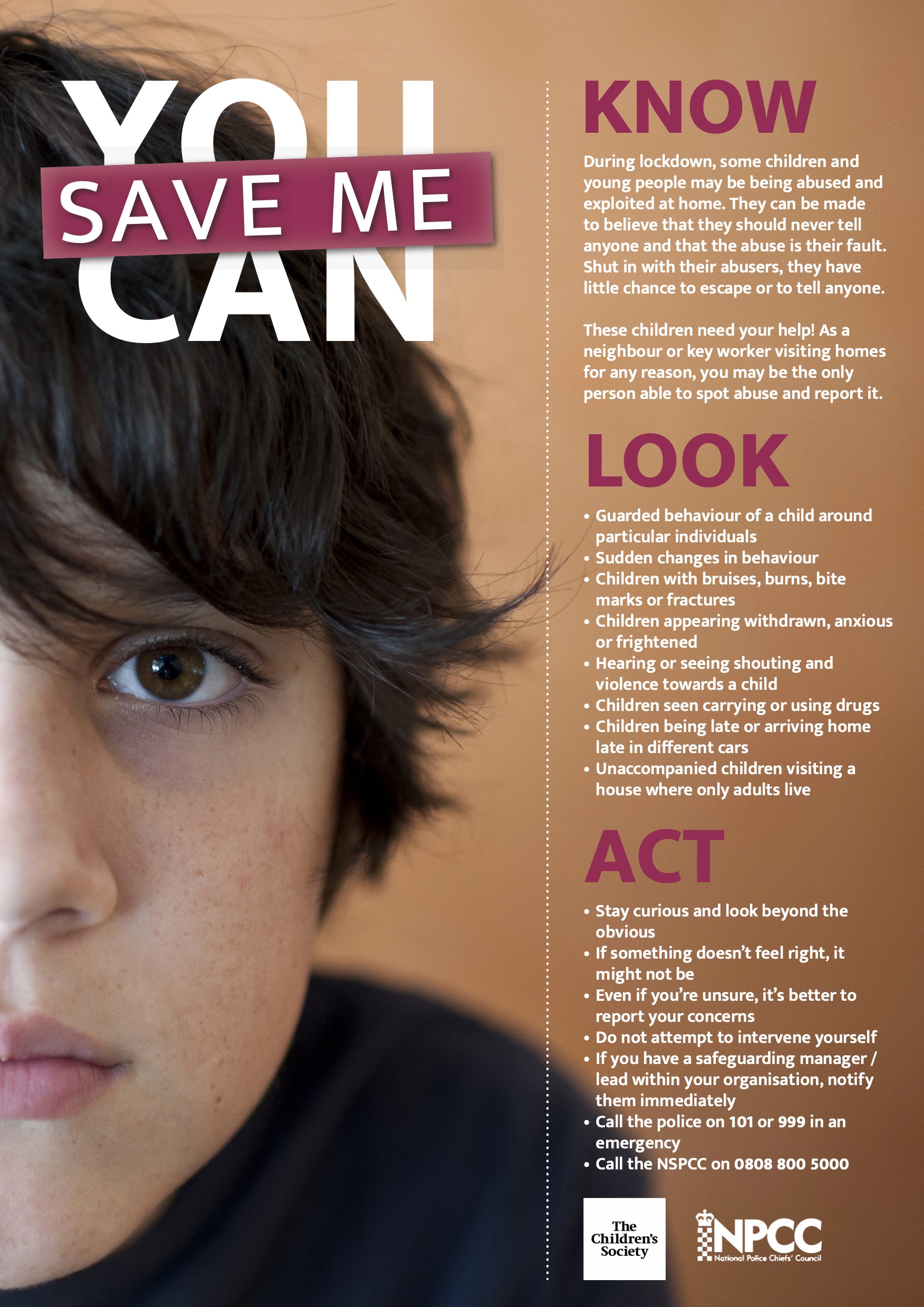
The Children’s Society is working with the National Police Chiefs Council (NPCC) to raise awareness among professionals who visit family homes. The campaign urges people to ‘Know, Look, Act’ during a time when many children are not attending nursery and schools are not fully reopen until September.
The Children’s Society fears abuse, including child sex abuse, may have been going undetected during the pandemic because children are spending more time at home, where they are less visible to professionals and the public. It also has concerns that children may be being exploited in other people’s homes, for example being groomed by organised criminals to deal drugs.
The campaign urges neighbours and people visiting homes to look out for signs that a child may be at risk, including:
- Bruises, burns bite marks and fractures
- Children appearing withdrawn, anxious or frightened
- Hearing or seeing shouting and violence towards a child
- Children seen carrying or using drugs
- Children arriving home late in different cars
- Unaccompanied children visiting a house where only adults live
- Guarded behaviour around particular individuals
- Sudden changes in behaviour.
 People are being urged to stay curious, look beyond the obvious and report any concerns rather than attempting to intervene themselves. Those visiting in a professional capacity should notify their safeguarding lead and contact police on 101 or 999 if it is an emergency.
People are being urged to stay curious, look beyond the obvious and report any concerns rather than attempting to intervene themselves. Those visiting in a professional capacity should notify their safeguarding lead and contact police on 101 or 999 if it is an emergency.
James Simmonds-Read, national prevention programme manager at the Children’s Society, warns that abuse and exploitation that may normally be picked up quickly could currently be ‘going under the radar’.
‘We can all play a vital role in protecting vulnerable children, which is why we are urging anyone with concerns - be it a pizza delivery driver, gas engineer or a worried neighbour - to take responsibility and report them,’ he said.
‘If something doesn’t feel right, it might not be and by speaking out you could help a child escape a really dangerous, traumatic situation.’
Chief Constable Simon Bailey, NPCC lead for Child Protection added that information from communities is a vital part of their work to protect children. ‘Child protection and safeguarding the vulnerable remains a priority for policing. We know the home is not the safe place it should be for all children, and the coronavirus restrictions have left young people at greater risk of familial abuse and online exploitation,’ he said.
‘There is also less opportunity for a child being abused to seek help or raise the alarm to anyone.’
Police forces have been provided with the campaign posters, along with professionals and businesses including supermarkets, restaurants, foodbanks, job centres, Covid testing centres and social workers, health visitors and medical professionals.
- The campaign poster can be downloaded here
Staying safe
In light of the Department for Education announcing that schools can delay teaching the new relationships and sex education curriculum until Summer 2021 due to disruption caused by the pandemic, the NSPCC is reminding parents and professionals of its PANTS campaign.
The campaign supports adults to talk to children about staying safe from sexual abuse. Each letter of PANTS provides a simple rule that can help children to protect themselves. Children learn that:
- Their body belongs to them
- They have the right to say no
- They should tell a trusted adult if they are worried or upset.
- For more information and to download a guide, go to: https://www.nspcc.org.uk/keeping-children-safe/support-for-parents/underwear-rule/









